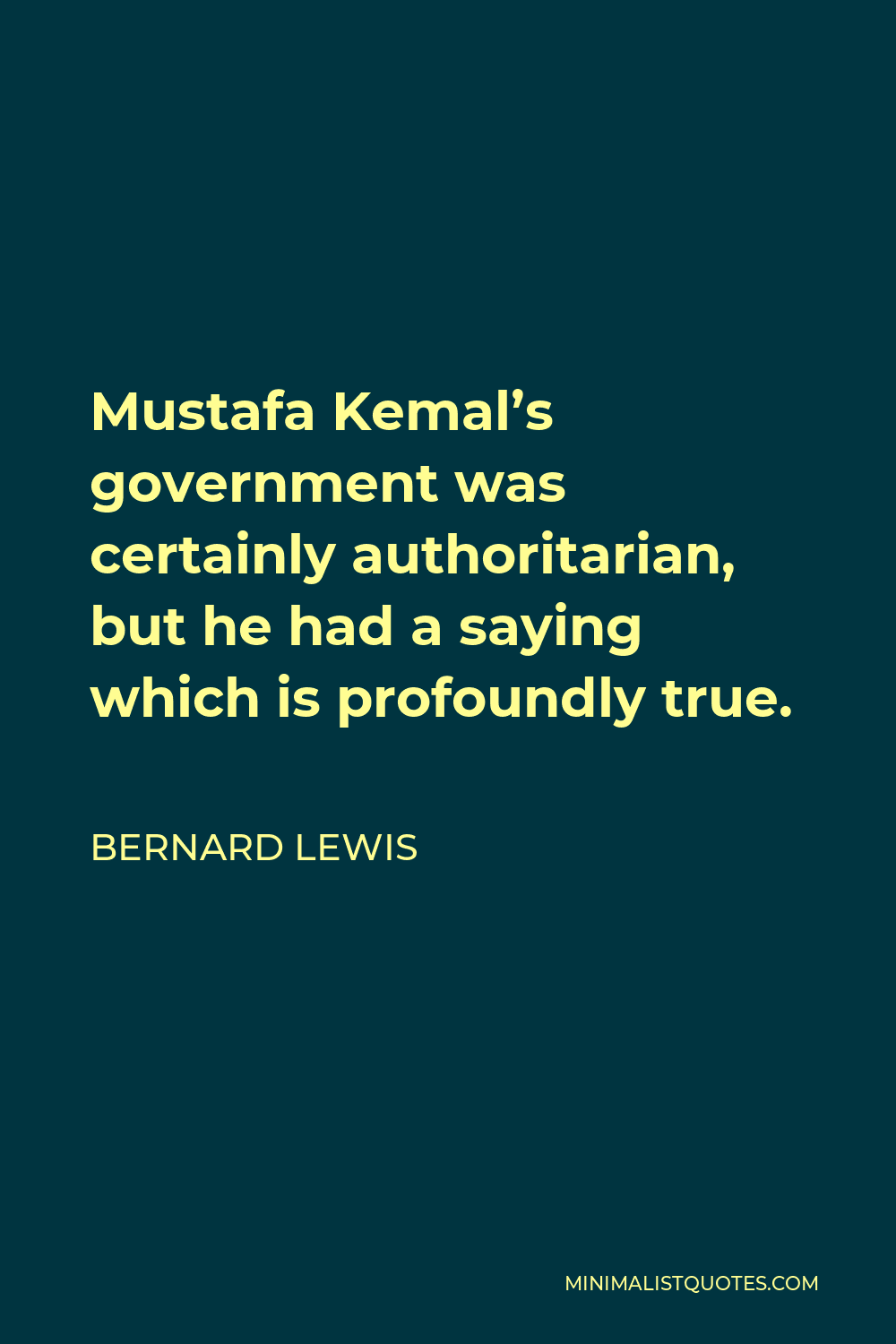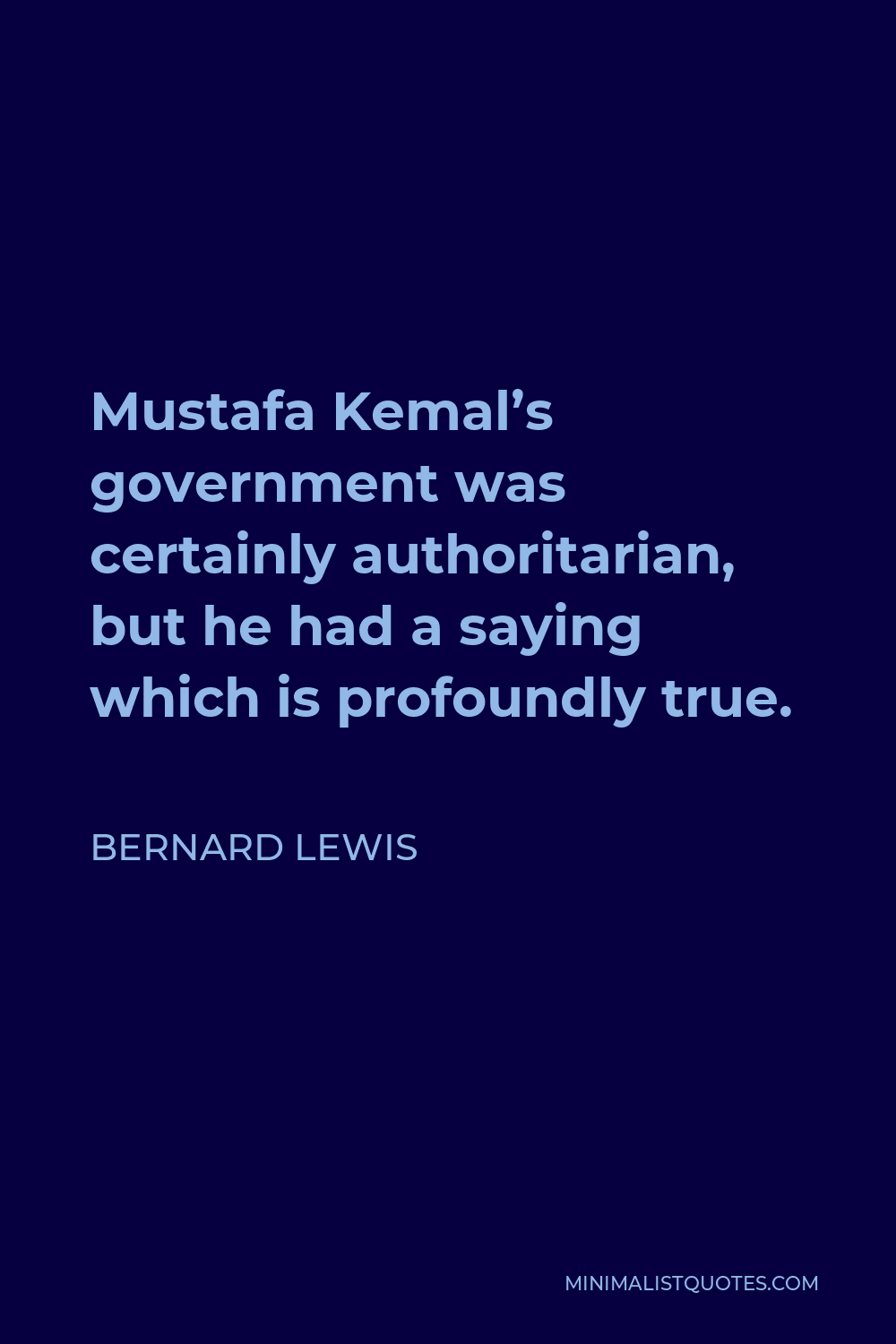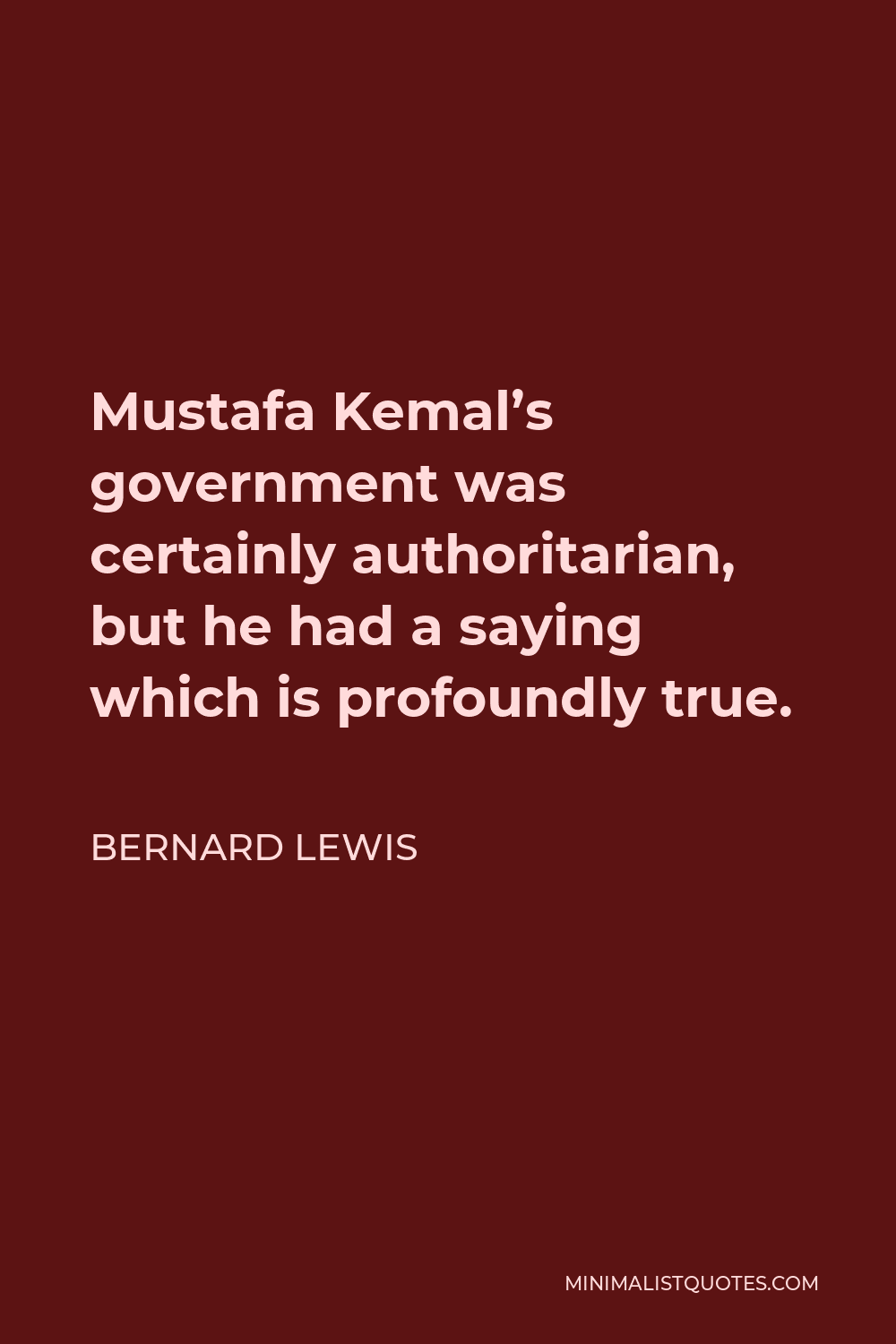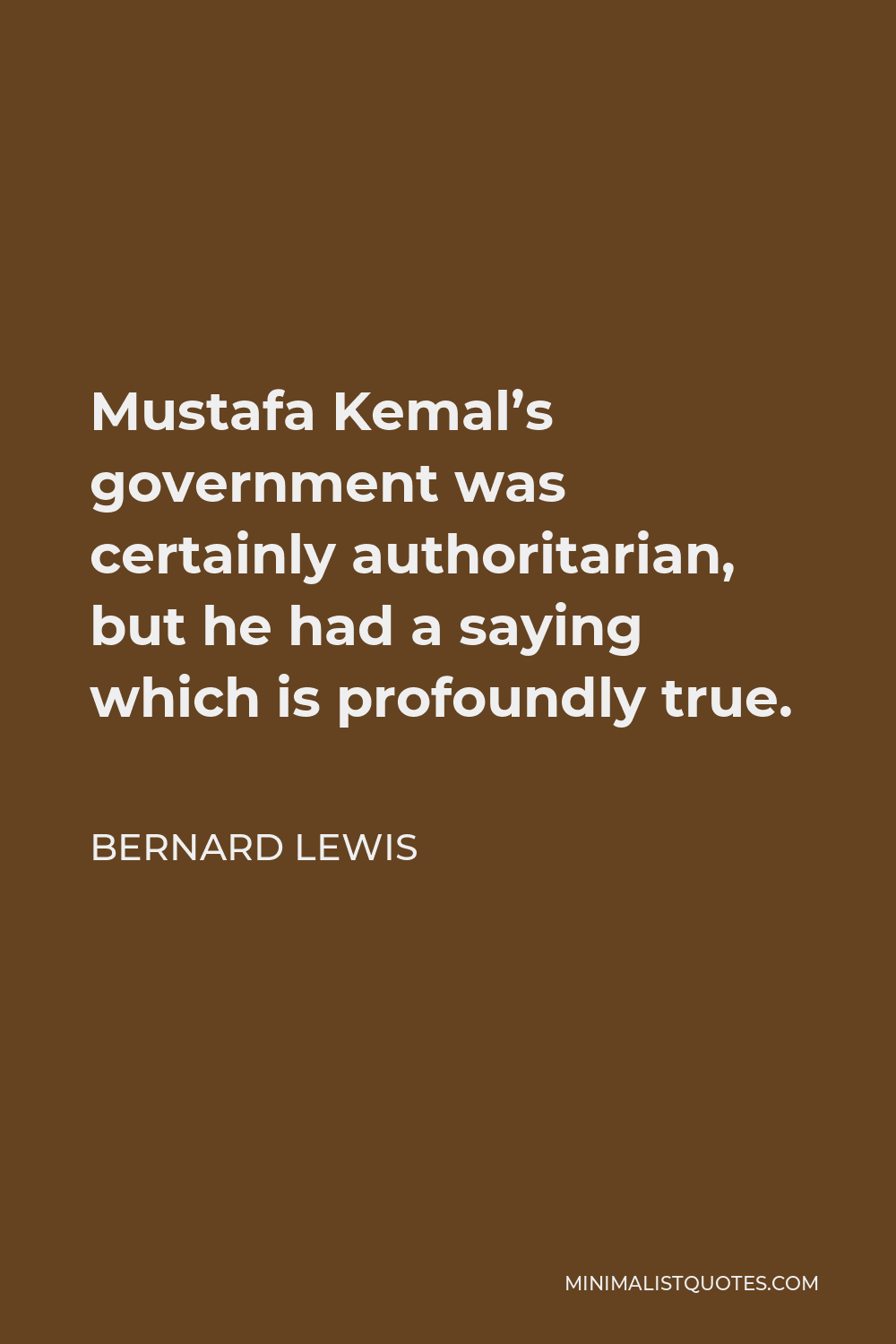To accept the story of the Arab destruction of the library of Alexandria, one must explain how it is that so dramatic an event was unmentioned and unnoticed not only in the rich historical literature of medieval Islam.
BERNARD LEWISMustafa Kemal’s government was certainly authoritarian, but he had a saying which is profoundly true.
More Bernard Lewis Quotes
-





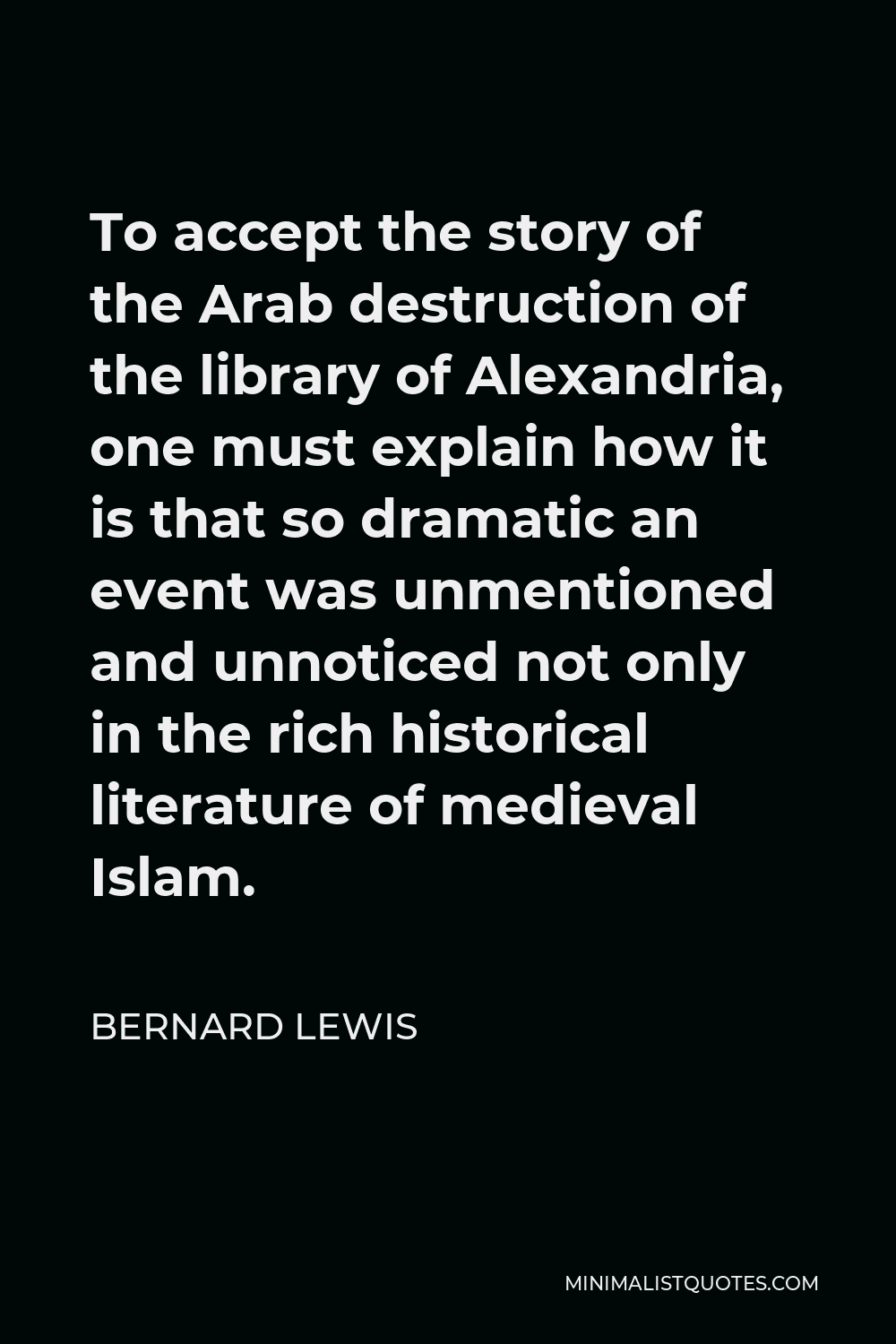
-





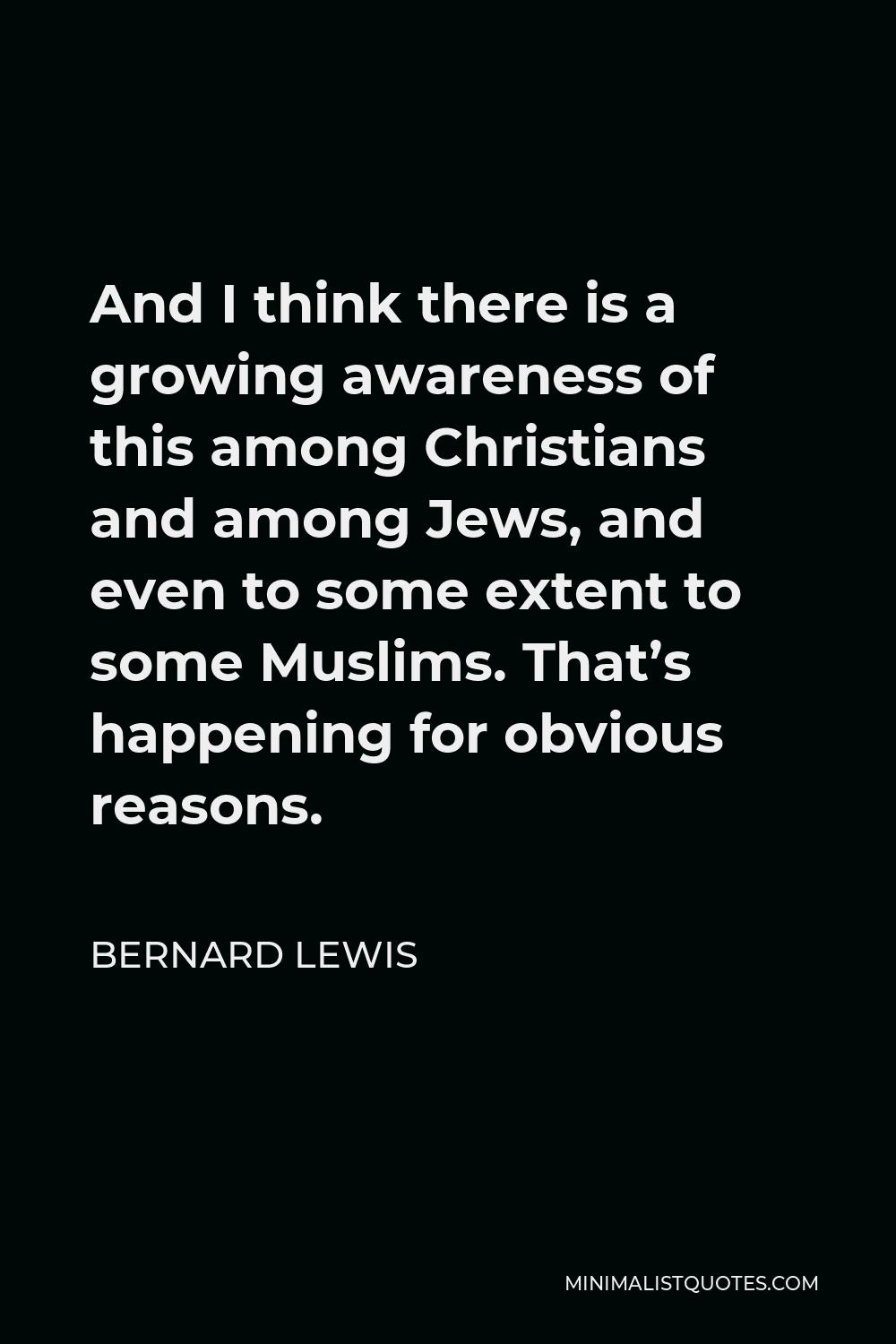
And I think there is a growing awareness of this among Christians and among Jews, and even to some extent to some Muslims. That’s happening for obvious reasons.
BERNARD LEWIS -





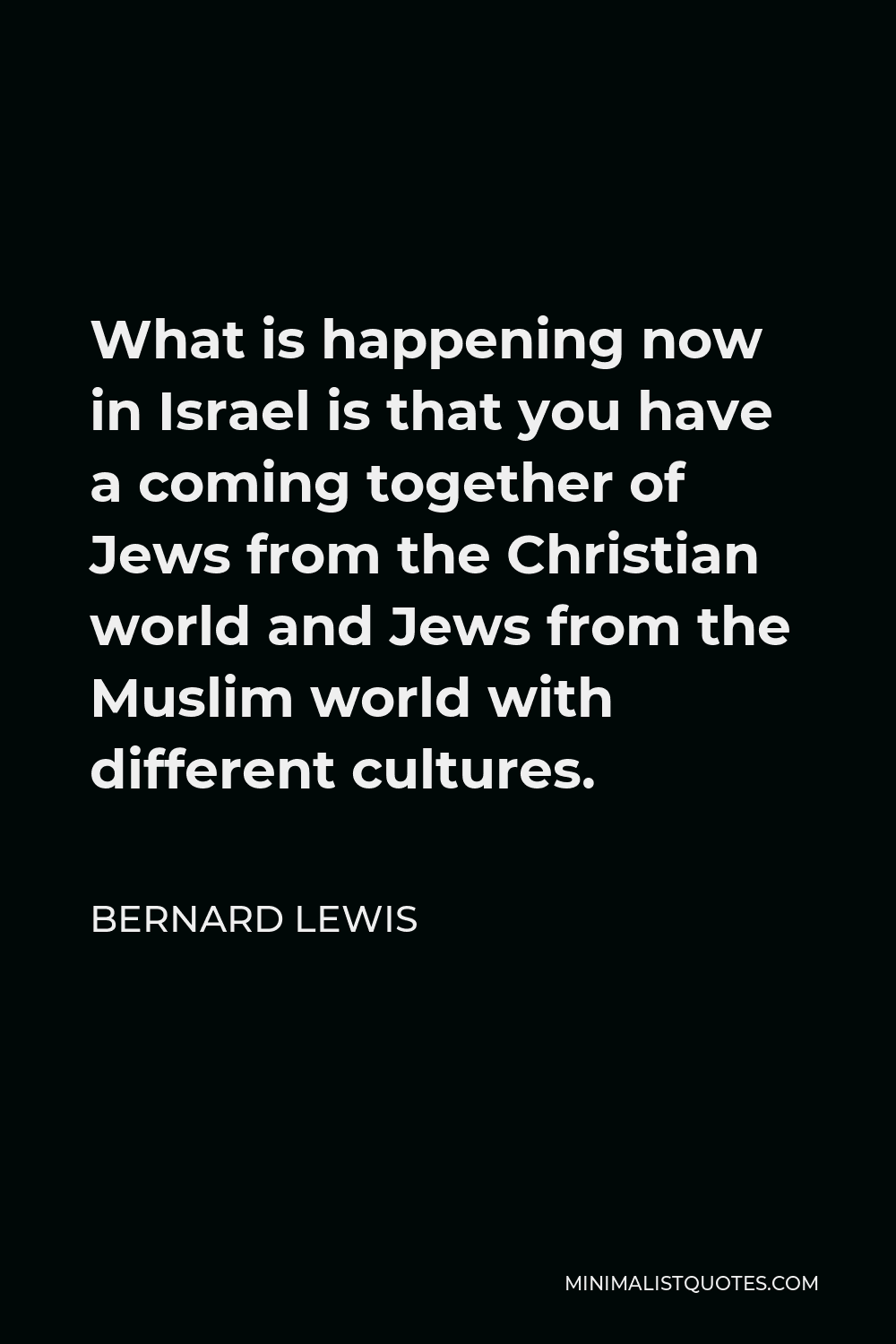
What is happening now in Israel is that you have a coming together of Jews from the Christian world and Jews from the Muslim world with different cultures.
BERNARD LEWIS -





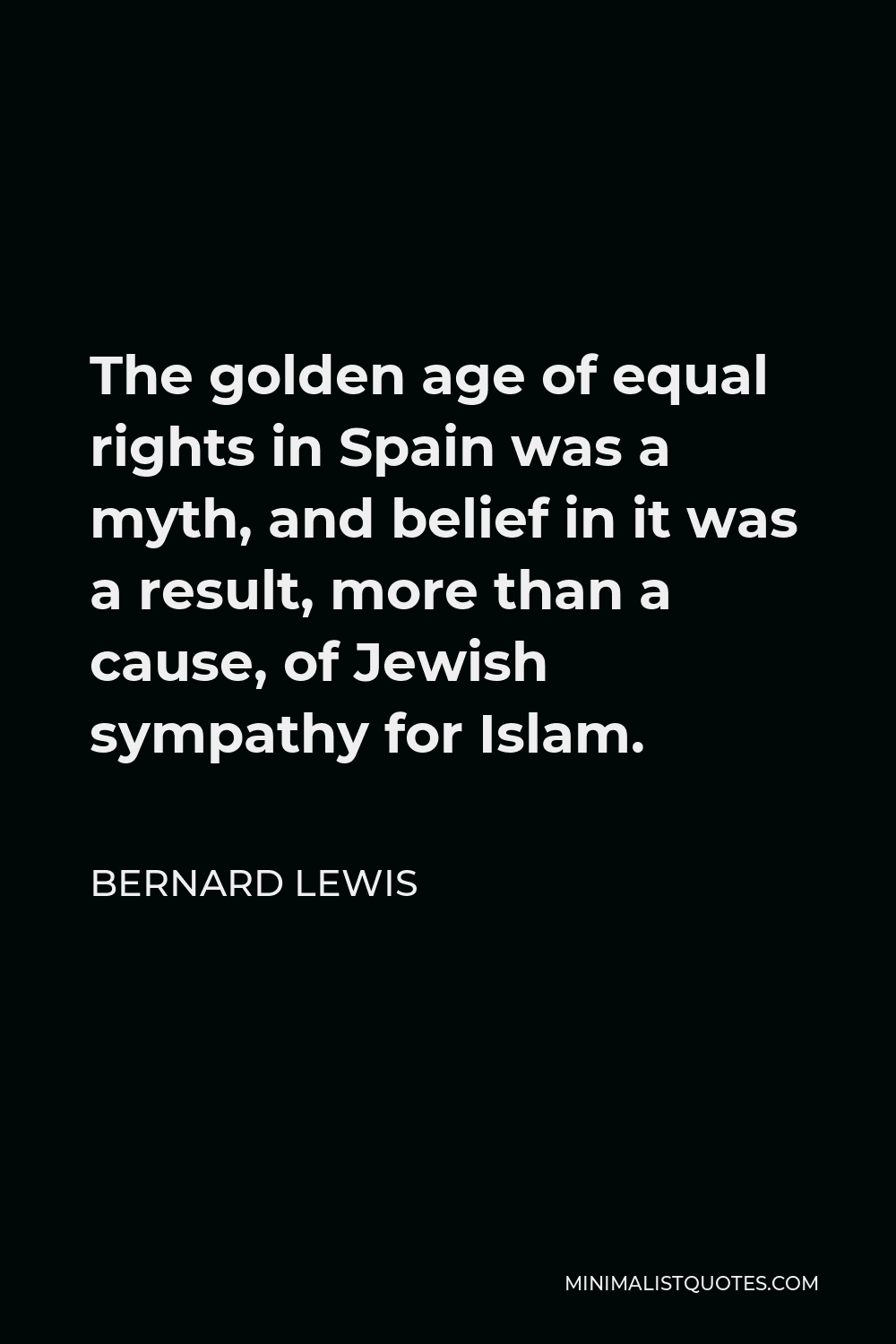
The golden age of equal rights in Spain was a myth, and belief in it was a result, more than a cause, of Jewish sympathy for Islam.
BERNARD LEWIS -





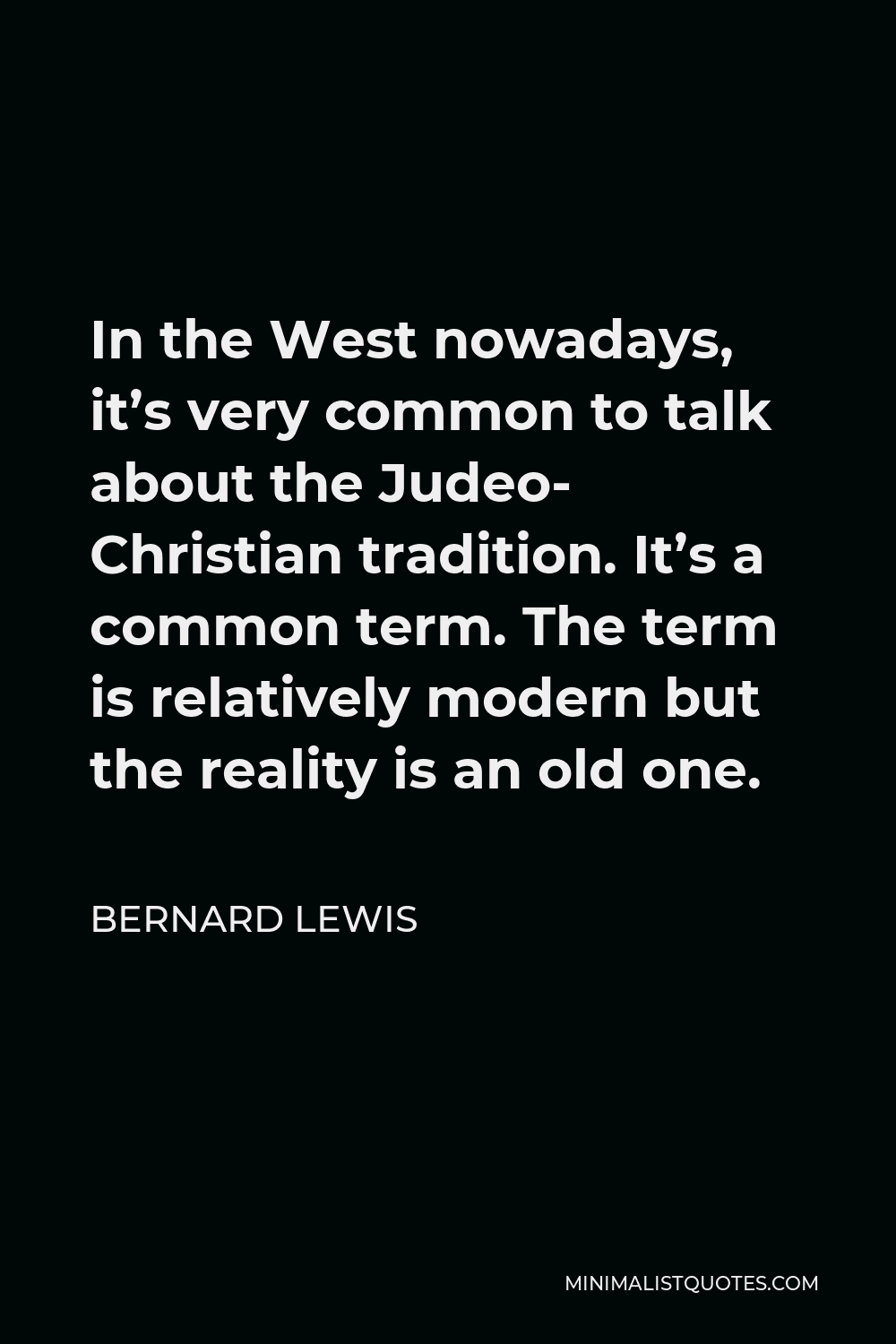
In the West nowadays, it’s very common to talk about the Judeo- Christian tradition. It’s a common term. The term is relatively modern but the reality is an old one.
BERNARD LEWIS -





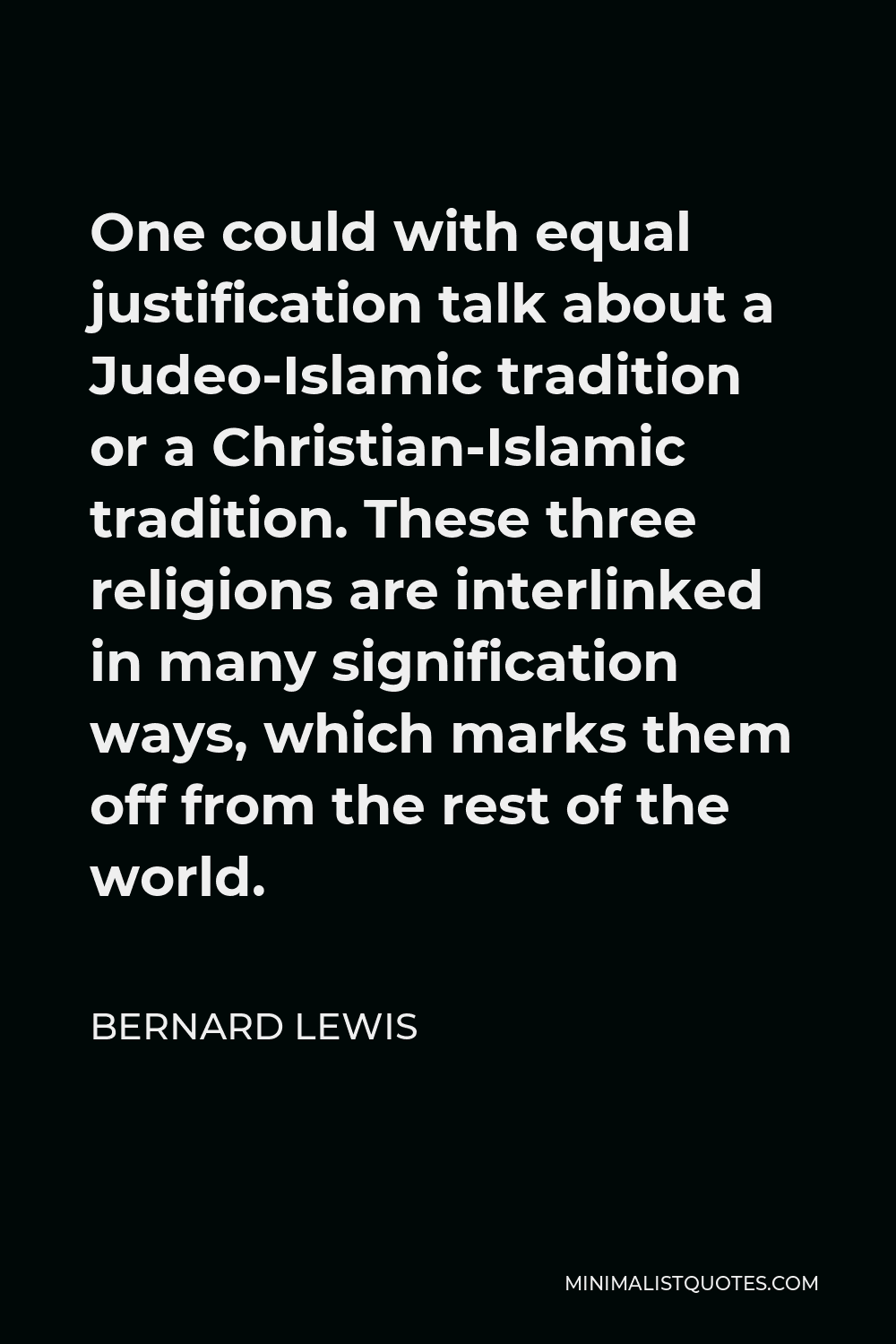
One could with equal justification talk about a Judeo-Islamic tradition or a Christian-Islamic tradition. These three religions are interlinked in many signification ways, which marks them off from the rest of the world.
BERNARD LEWIS -





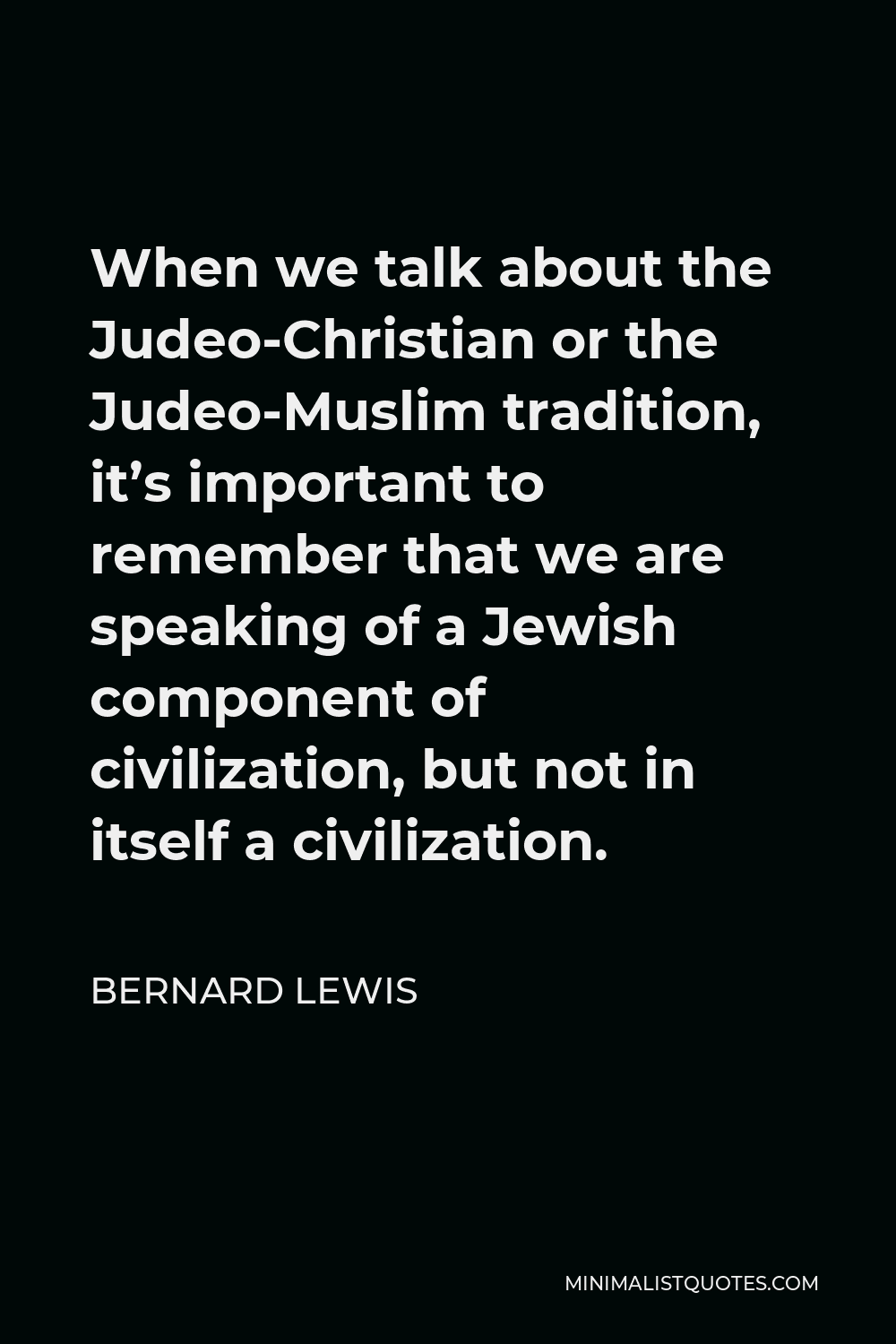
When we talk about the Judeo-Christian or the Judeo-Muslim tradition, it’s important to remember that we are speaking of a Jewish component of civilization, but not in itself a civilization.
BERNARD LEWIS -





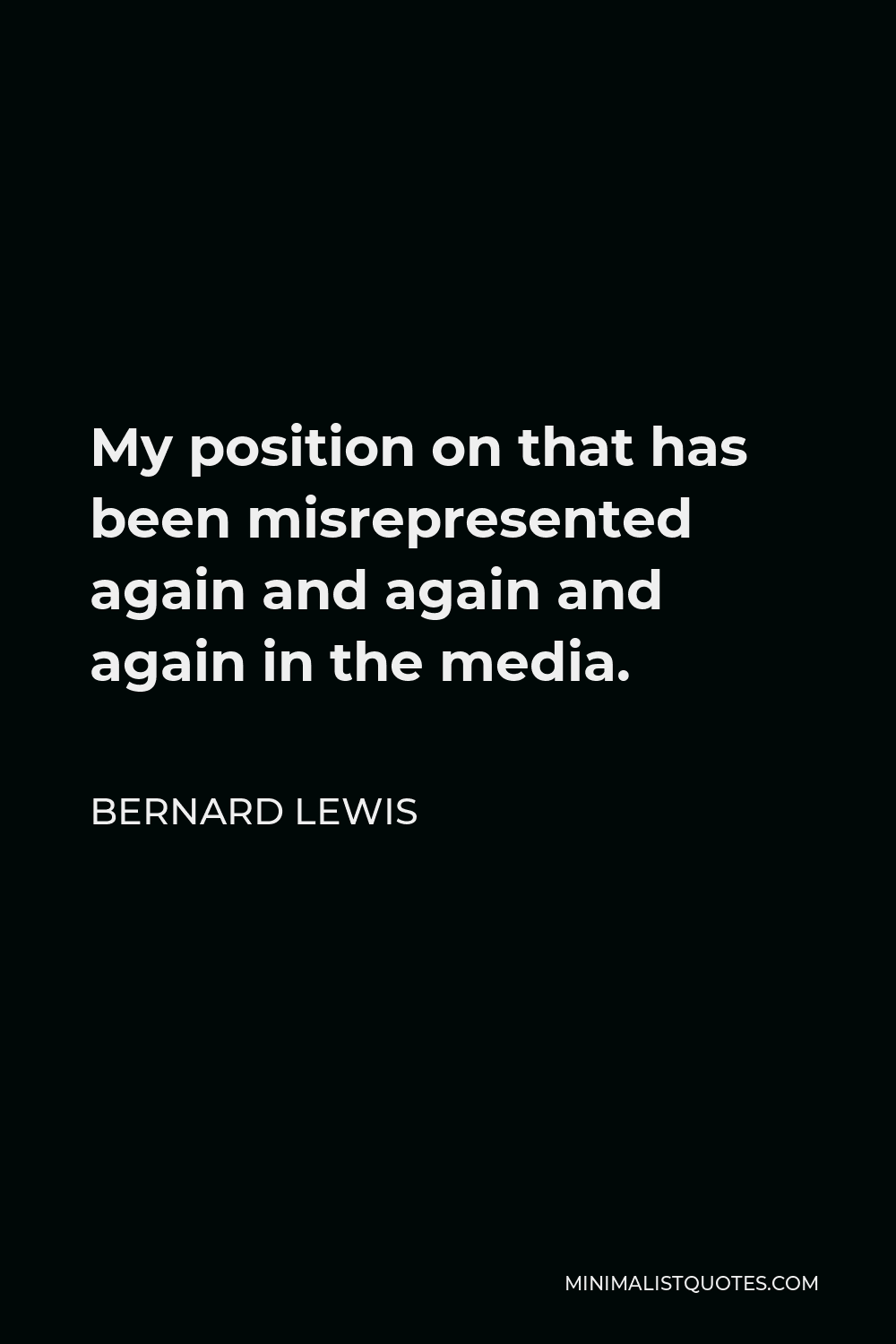
My position on that has been misrepresented again and again and again in the media.
BERNARD LEWIS -





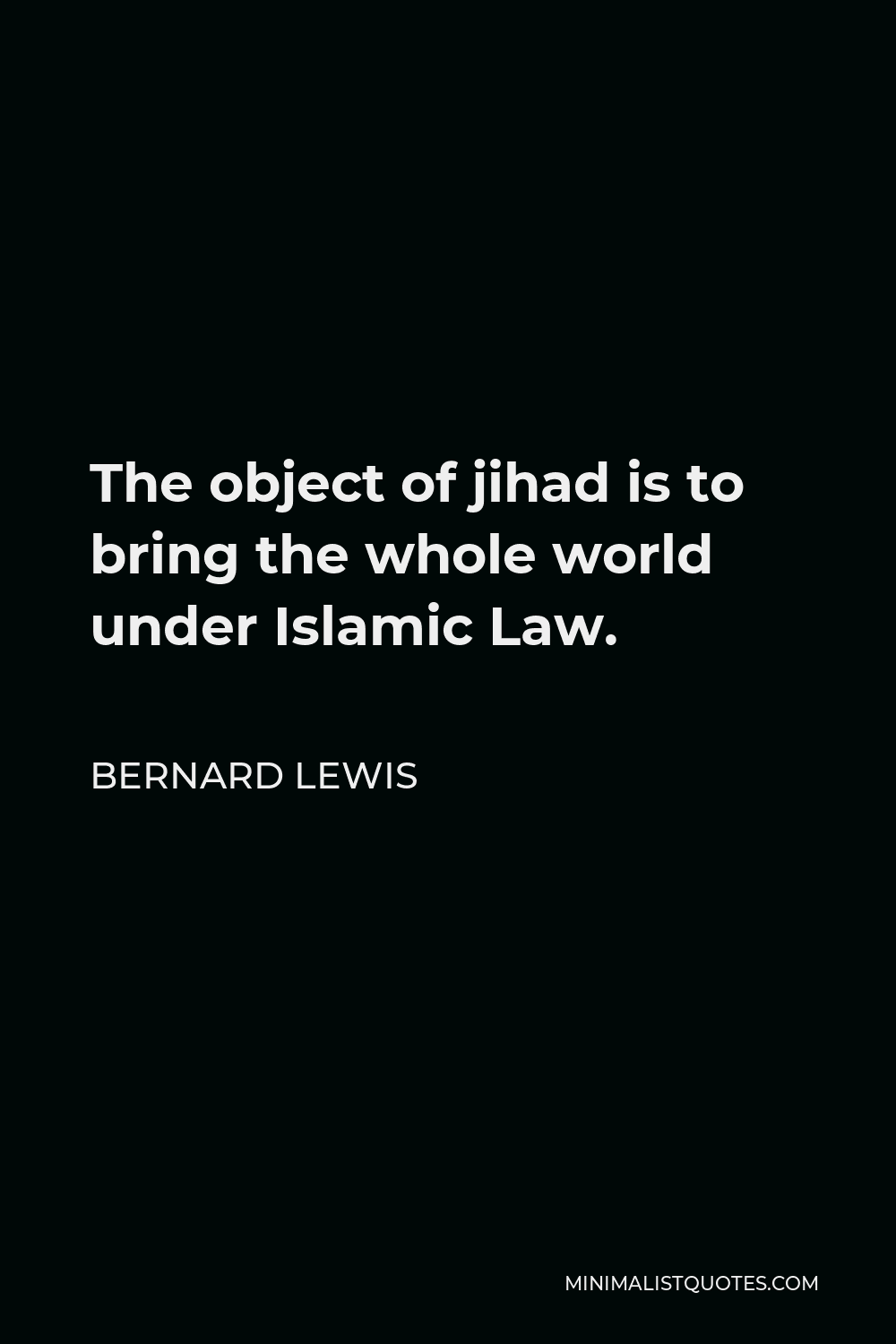
The object of jihad is to bring the whole world under Islamic Law.
BERNARD LEWIS -





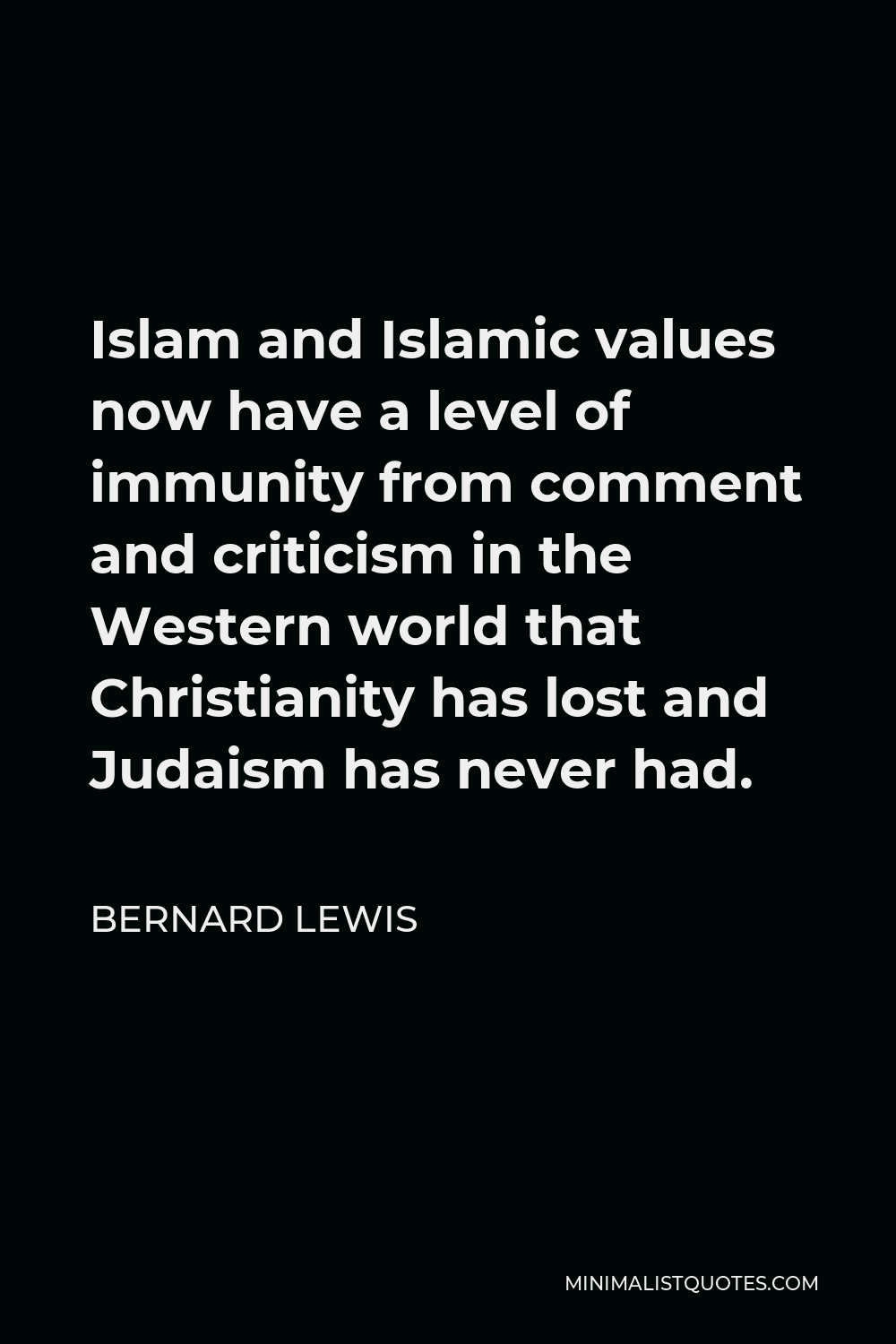
Islam and Islamic values now have a level of immunity from comment and criticism in the Western world that Christianity has lost and Judaism has never had.
BERNARD LEWIS -





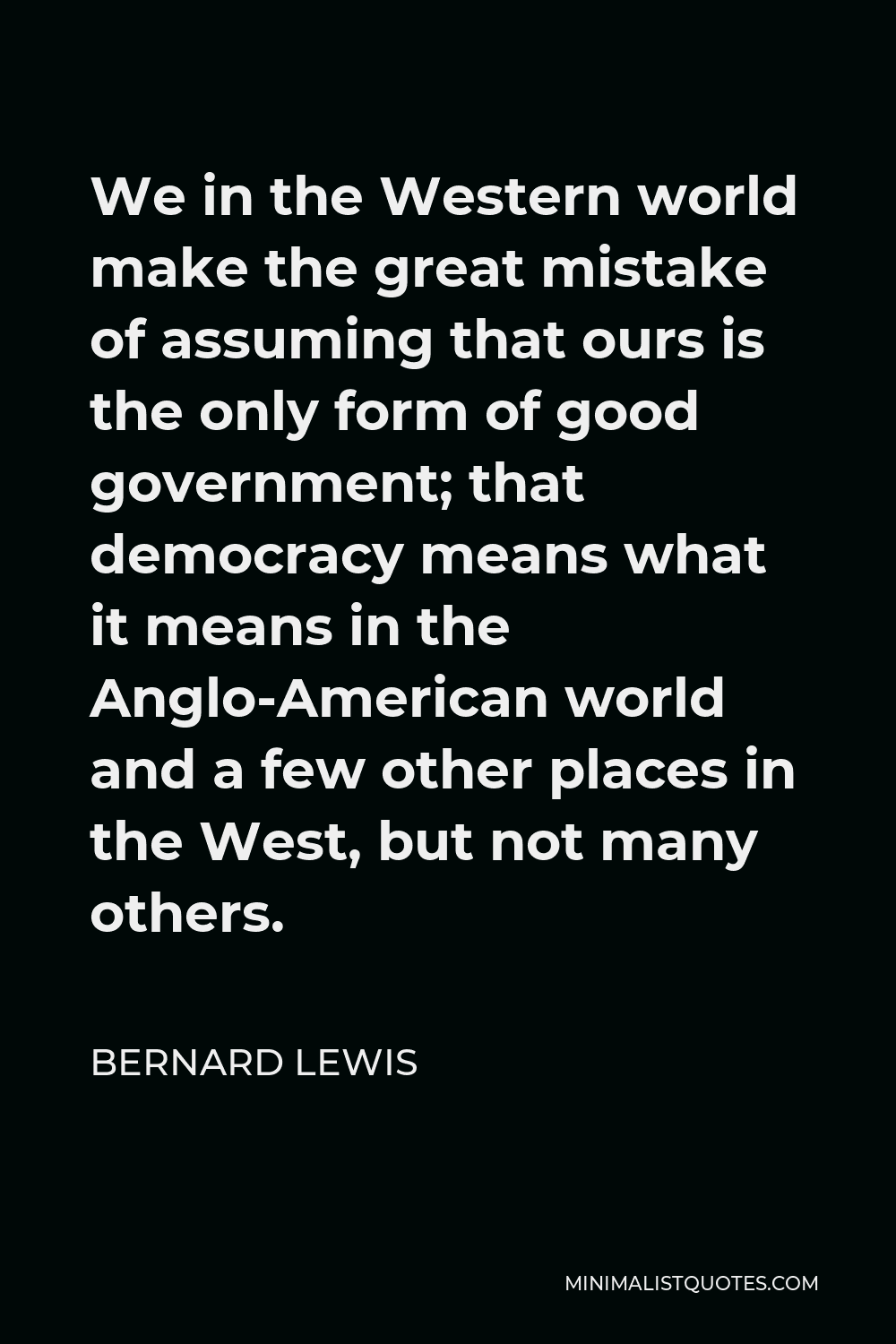
We in the Western world make the great mistake of assuming that ours is the only form of good government; that democracy means what it means in the Anglo-American world and a few other places in the West, but not many others.
BERNARD LEWIS -





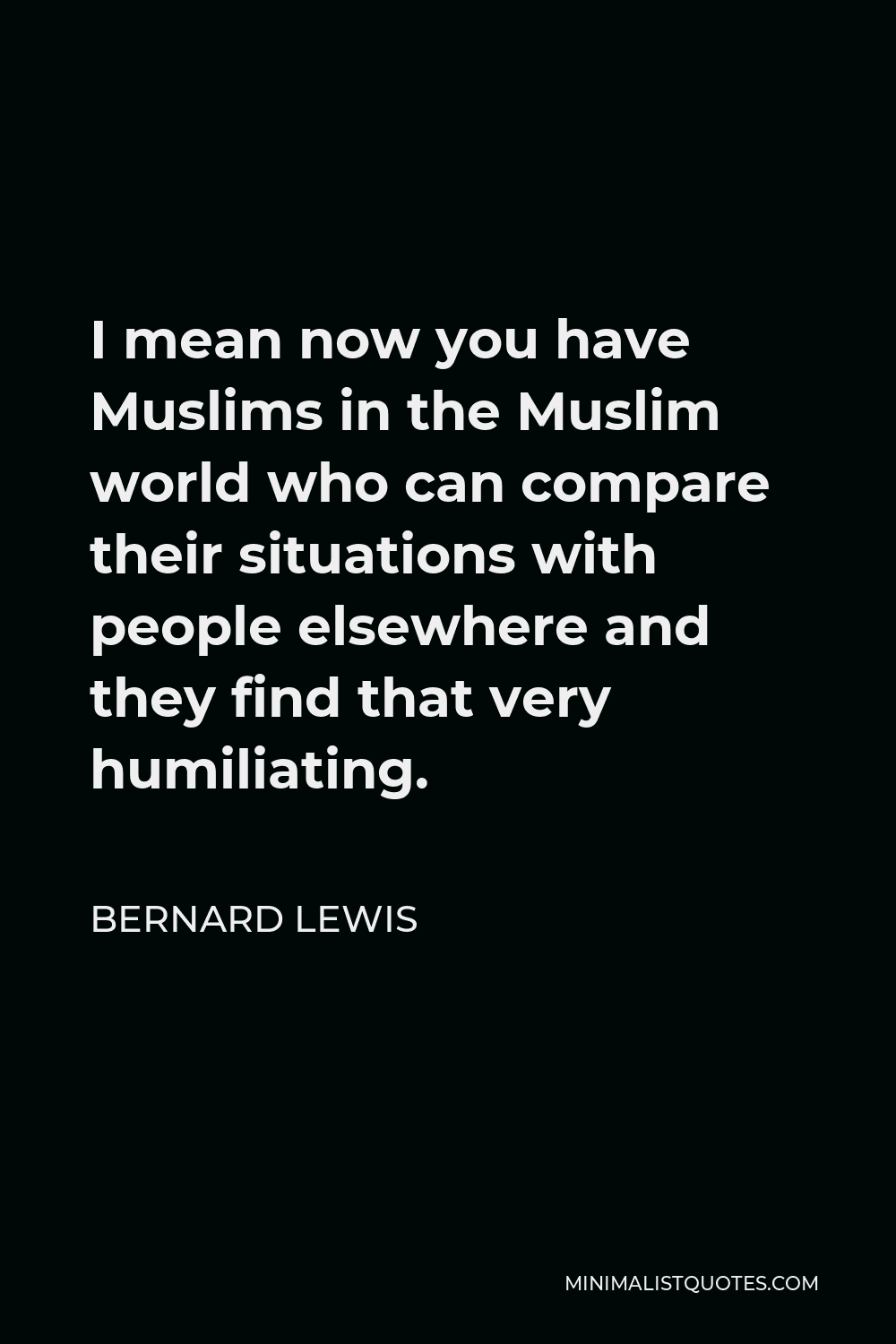
I mean now you have Muslims in the Muslim world who can compare their situations with people elsewhere and they find that very humiliating.
BERNARD LEWIS -





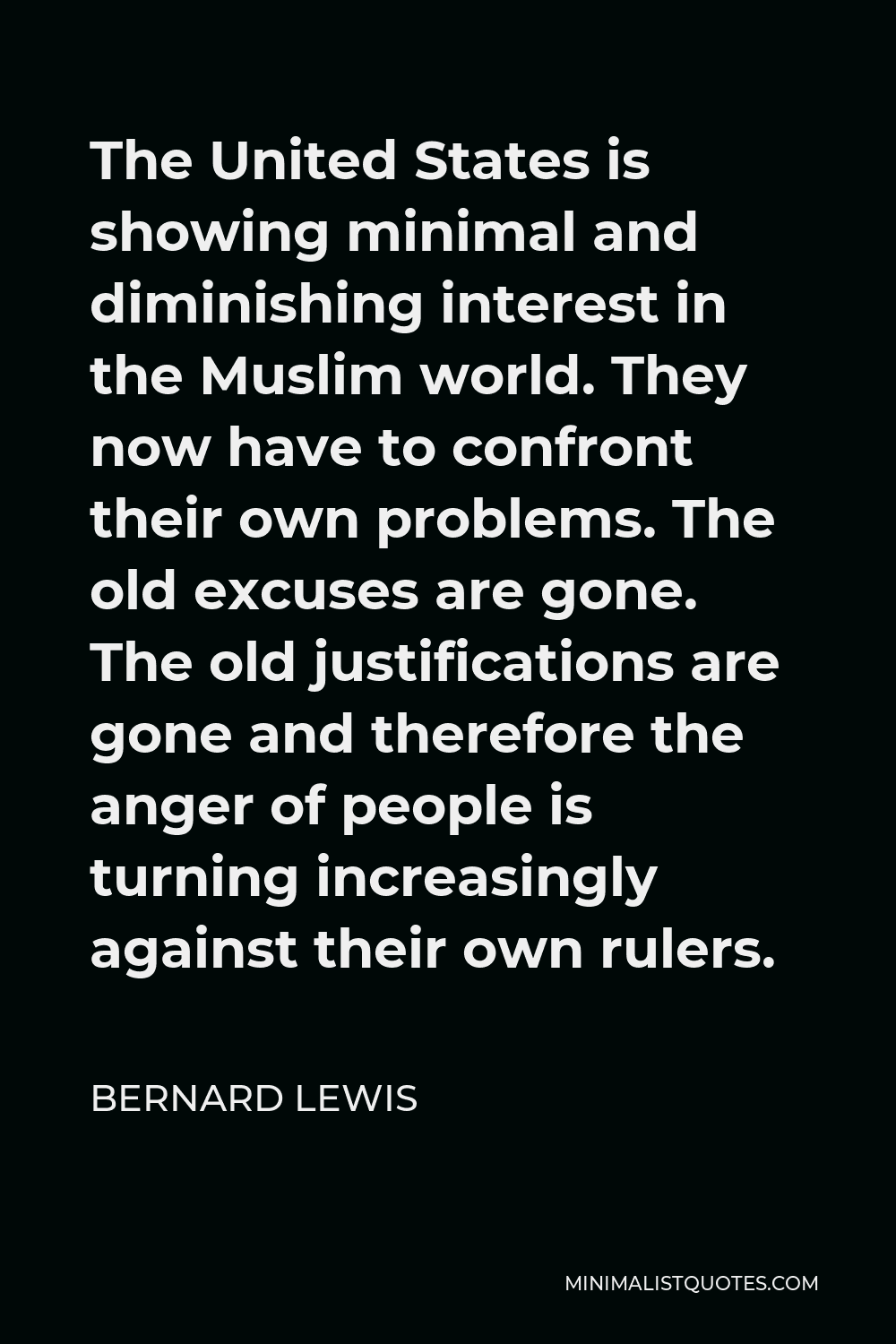
The United States is showing minimal and diminishing interest in the Muslim world. They now have to confront their own problems. The old excuses are gone. The old justifications are gone and therefore the anger of people is turning increasingly against their own rulers.
BERNARD LEWIS -





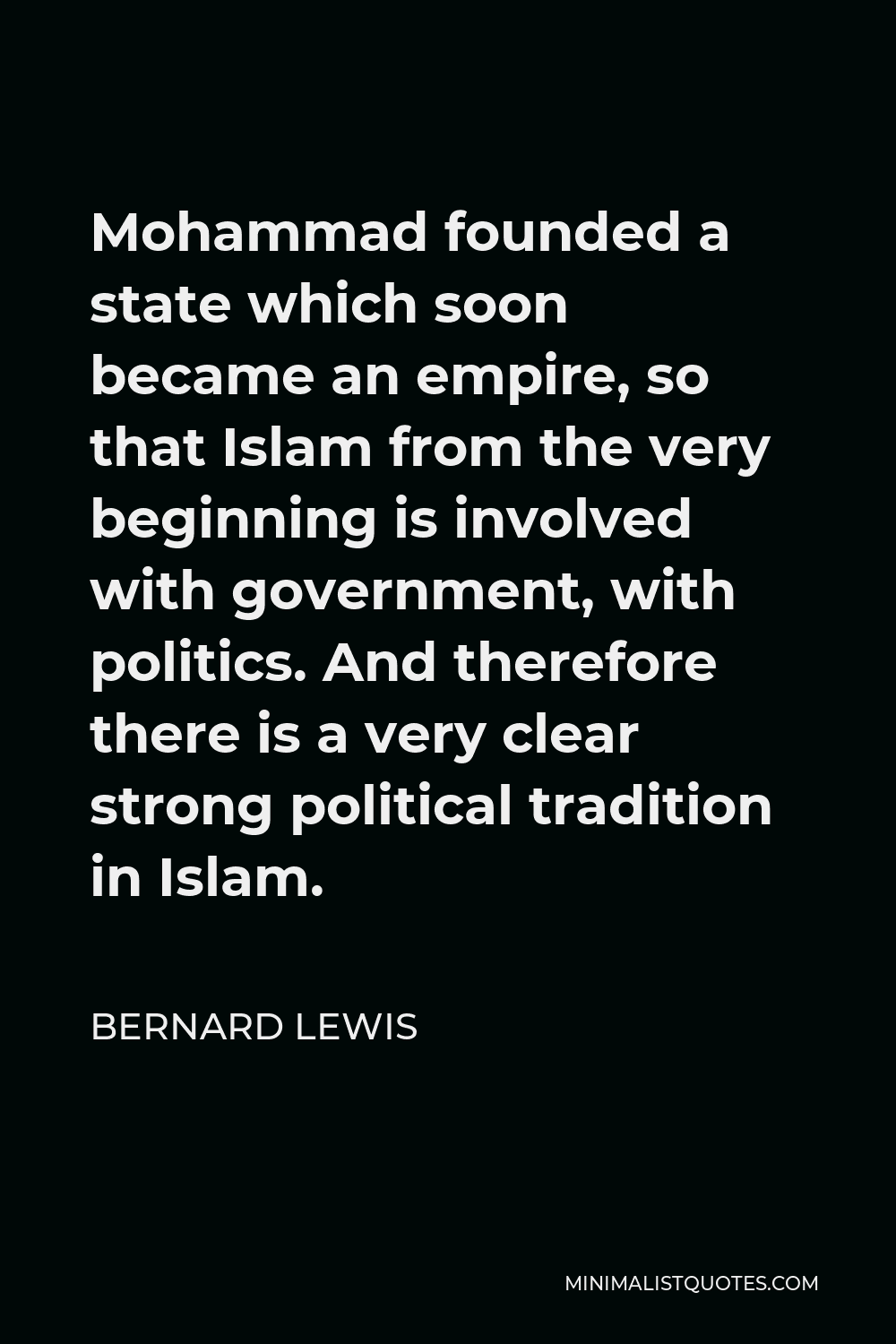
Mohammad founded a state which soon became an empire, so that Islam from the very beginning is involved with government, with politics. And therefore there is a very clear strong political tradition in Islam.
BERNARD LEWIS -





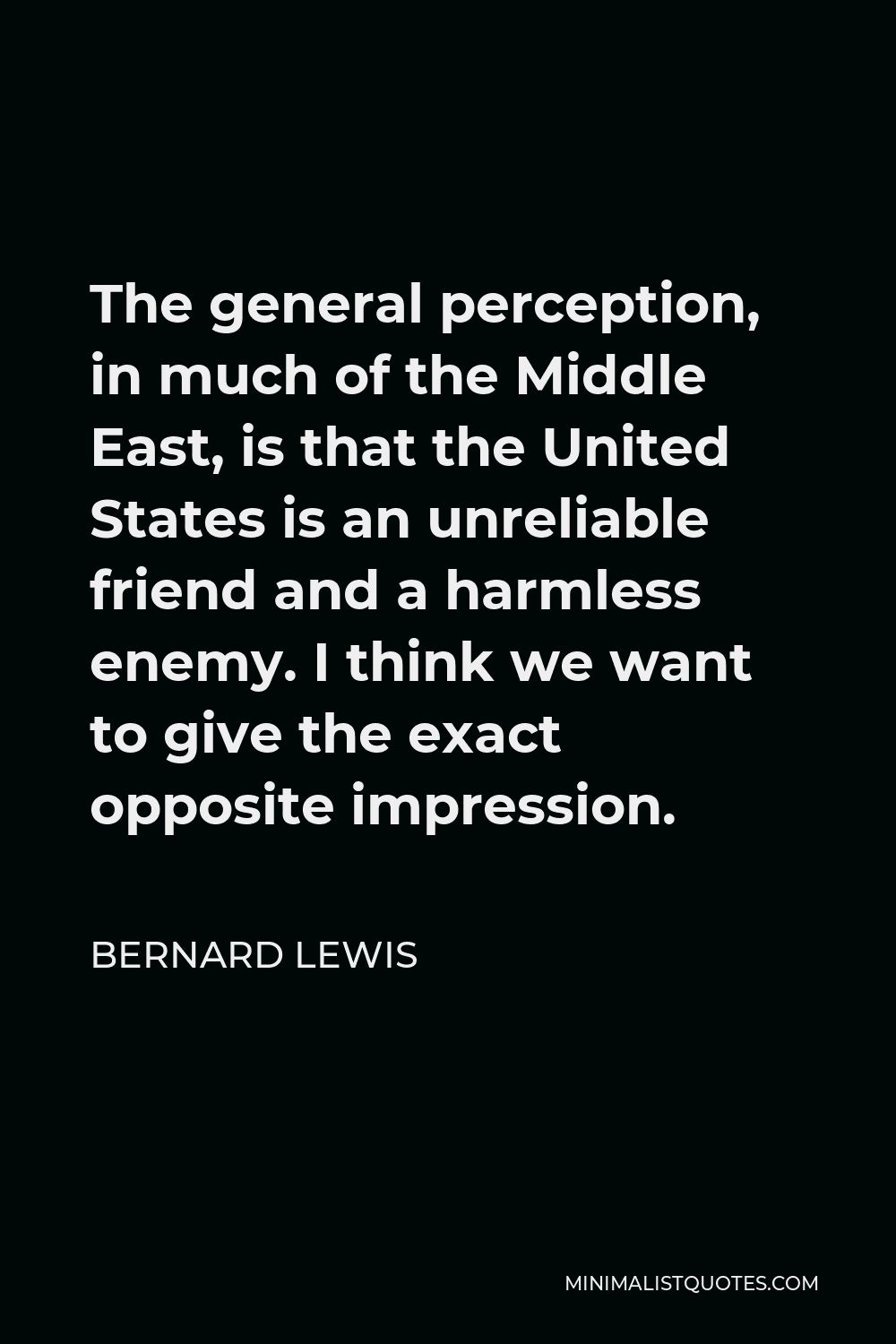
The general perception, in much of the Middle East, is that the United States is an unreliable friend and a harmless enemy. I think we want to give the exact opposite impression.
BERNARD LEWIS -





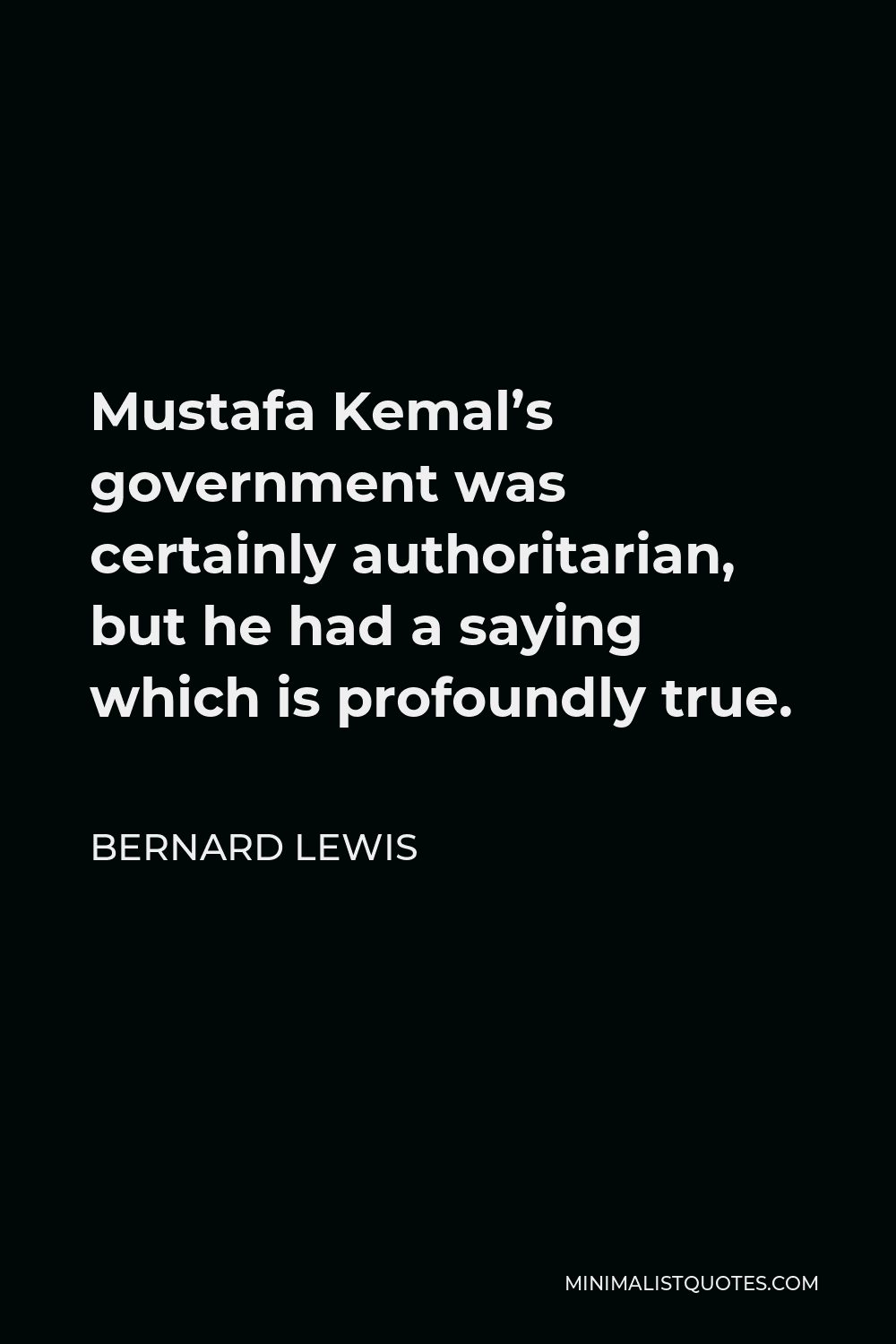
Mustafa Kemal’s government was certainly authoritarian, but he had a saying which is profoundly true.
BERNARD LEWIS

